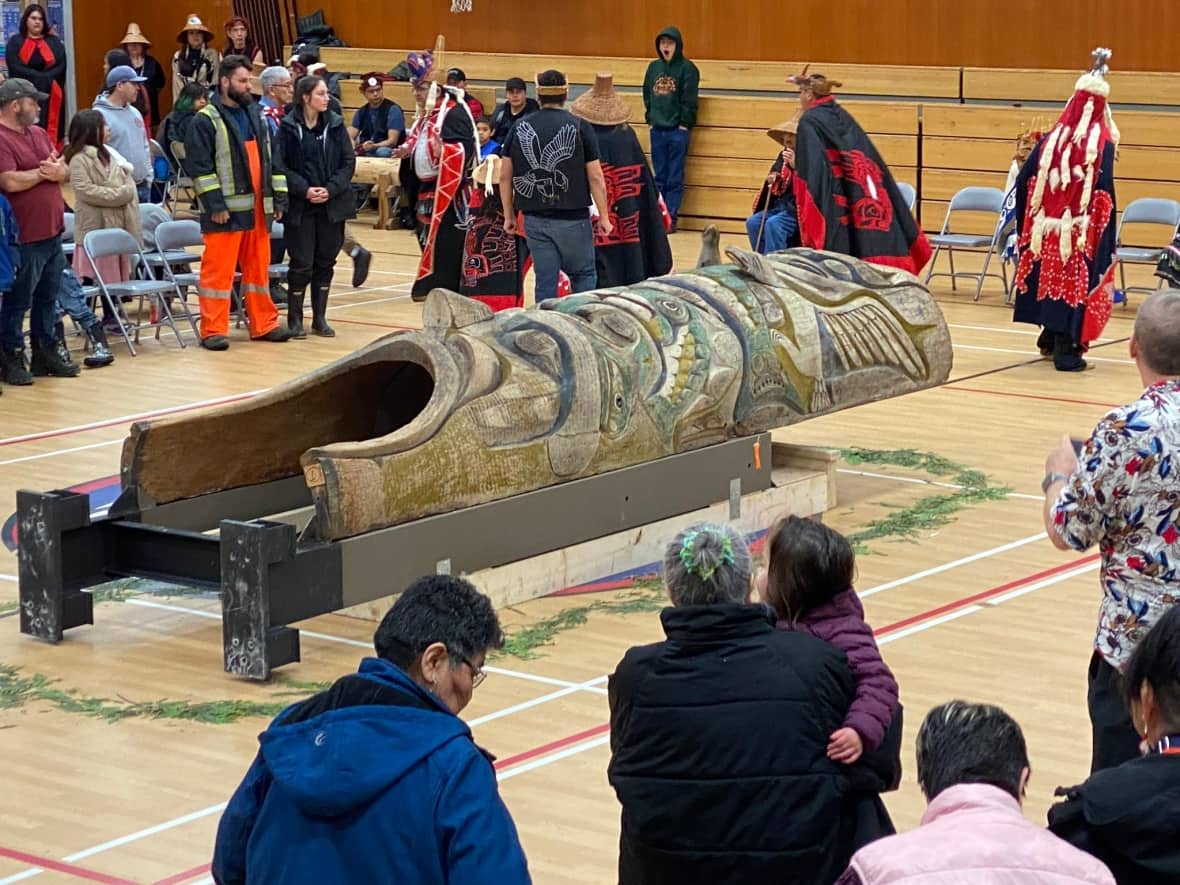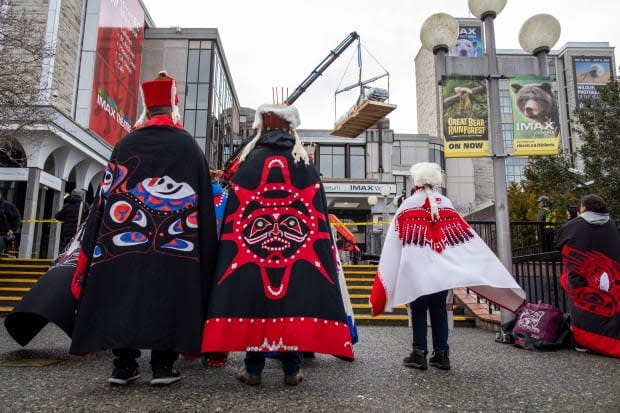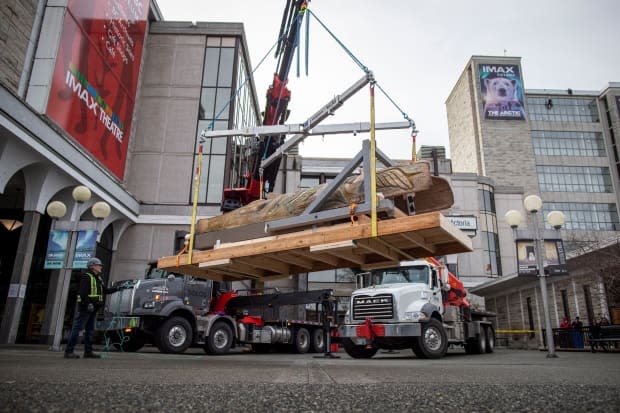Nuxalk Nation celebrates return of totem pole after more than a century

Honking horns greeted a long line of vehicles winding along the snowy highway leading into Bella Coola, about 1,000 km northwest of Vancouver, on B.C.'s central coast last week.
At the helm was a truck carrying precious cargo: a Nuxalk totem pole, taken from the community more than 100 years ago, at long last returning home to its rightful owners.
The honking continued as the convoy made its way into the community, having travelled along the highway after taking the ferry from Victoria, where the totem had been in the Royal B.C. Museum since 1913.
"It's kind of surreal," said one onlooker who captured the moment on video. "Home on Nuxalk territory."
WATCH | Celebrations in Bella Coola following return of totem pole
"It was one hell of a trip, but we got there," Hereditary Chief Snuxyaltwa (Deric Snow) said when he was speaking to The Current host Matt Galloway about the journey.
Snuxyaltwa said about 200 people were in Bella Coola to celebrate the pole's return with blessings and celebration Thursday.
The journey home was long in both distance and time — a mission Snuxyaltwa started several years earlier when he formally requested the pole's return from the museum, and later when he threatened legal action because the process was so slow.
Snuxyaltwa said the pole was carved by his great-grandfather, the late Louie Snow and former owner of the Snuxyaltwa title, in the 19th or early 20th century. It was placed outside the family longhouse in Talleomy (South Bentinck).

It was lost in the early 1900s when Nuxalk members, seeking to evade the smallpox epidemic, relocated about 35 km north to Bella Coola.
It ended up in the Royal B.C. Museum's collection around 1913.
Due to the pole's size, walls and windows of the museum had to be removed and a crane had to lift it out.
WATCH | A convoy of vehicles follows the totem pole into Bella Coola:
Two days of ceremony followed, and then the trek back to Nuxalk territory began; it travelled by truck, on the ferry to the mainland and up through the province's Interior to Bella Coola.
The chief said the return is a good first step because his great-grandfather's spirit remained inside the totem pole and could not be at rest until it was returned home.
"The circle of life is we never pass away," he said.
"We're just here for a visit and once that visit's over, we go on to another journey and my [great-grandfather] wants to continue that journey."
WATCH | Hereditary Chief Snuxyaltwa speaks about the importance of the totem pole:
"Our history is embedded in these poles, a great history, and when they're taken, it's almost as if it's like our children were taken,'' Nuxalk member Charlene Schooner told The Canadian Press.
"They are part of our history.''
On Monday afternoon, the Nuxalk Nation hosted a ceremony at the Acwsalcta School gymnasium in Bella Coola to celebrate the return of the pole.
Hundreds gathered at the gymnasium to mark the occasion with song and dance, followed by a feast in the evening.
The totem pole will be on display at the school's entrance for 12 months before it's moved to a permanent location on traditional territory.
"There is a really warm feeling in my heart," said Mara Pootlass, who was there on Monday and has family connections to the pole.
"I could feel the spirit."

The museum is paying for costs associated with returning the pole, but was unable to confirm the details to CBC.
Snuxyaltwa said the response from people around the world has been overwhelming.
"They like how this was done in a very positive way, in a spiritual way for the people," he said.
He said the return of the pole will be an opportunity to bring stories back to his people.
"My family is happy, our ancestors are rejoicing," he said.


